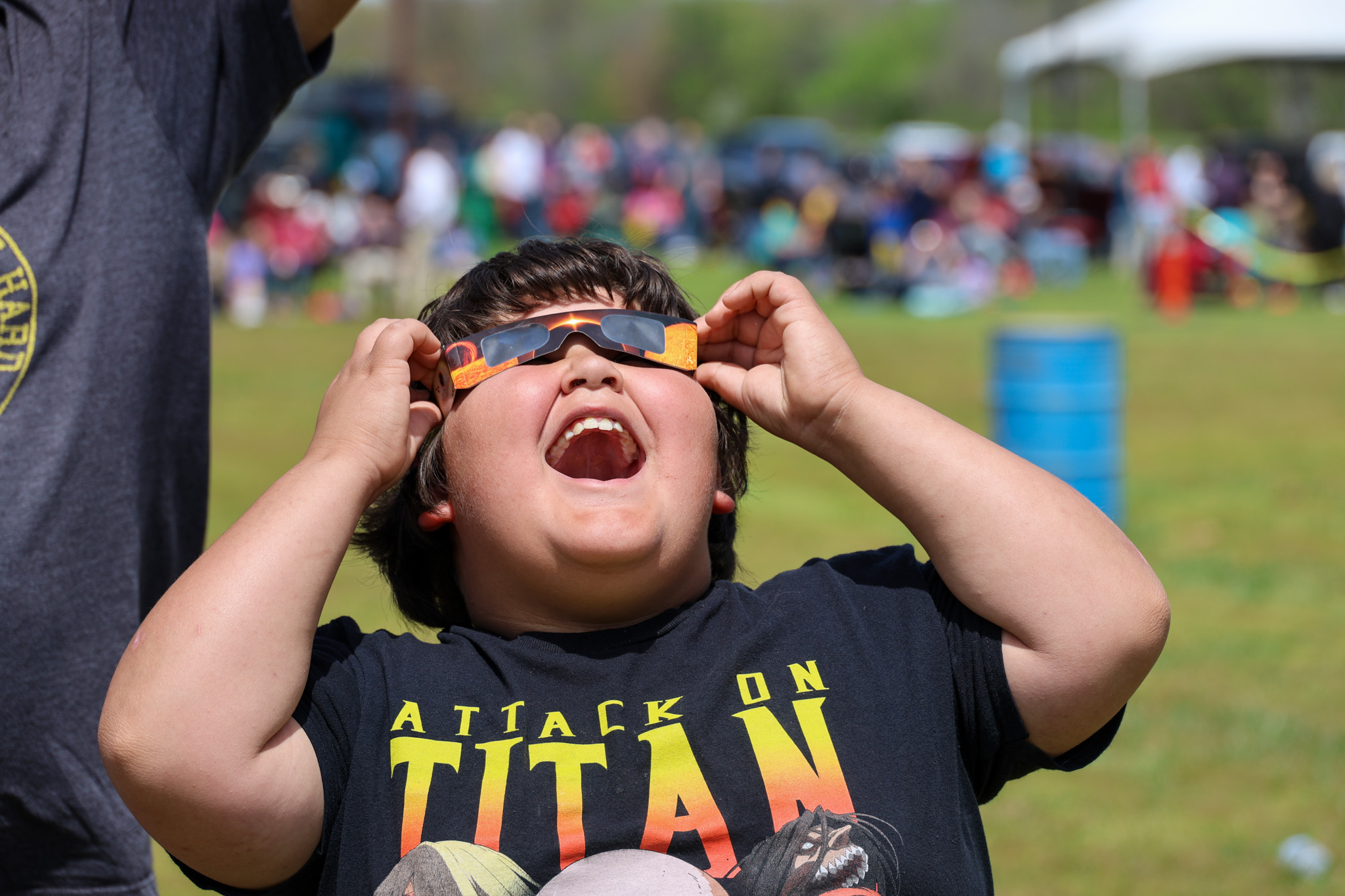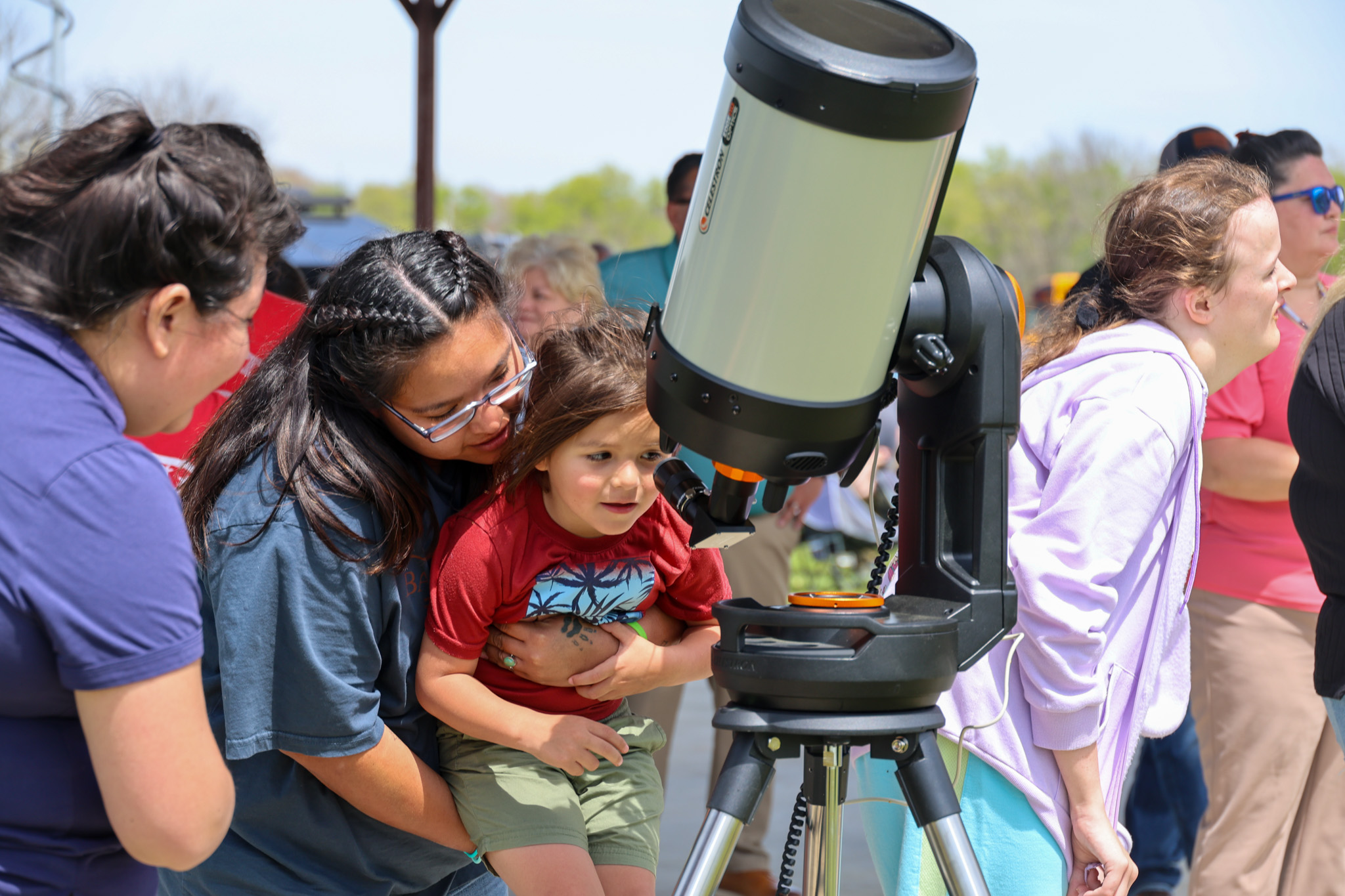
- Details
- By Native News Online Staff
Hundreds of Cherokee citizens gathered on the Cherokee Nation Reservation in Tahlequah, Oklahoma to watch the eclipse on Monday afternoon under blue skies with temperatures in the low 80s.
The citizens were joined at the festive 2024 Solar Eclipse Watch Party by Cherokee Nation Deputy Principal Chief Bryan Warner, along with other Cherokee Nation leaders and students from our immersion school.
Cherokee National Treasurer Robert Lewis told the Cherokee story, “Frog Eats the Sun,” to the pleasure of the school students.
According to Cherokee lore, a giant frog eats the sun or the moon during an eclipse, which causes the earth to go dark. Men and women needed to scare the frog into spitting the sun out, so they created as much noise as they could. The men shot rifles into the air and pounded on drums while the women banged on pots and pans and used shell shakers. Once the frog released the sun which restored balance, the noise turned into a celebration.

The Cherokee Nation provided a telescope for viewing, along with stickball and cornhole for everyone to enjoy.
The next total eclipse in North America will not occur for two decades.
More Stories Like This
Native News Weekly (August 25, 2024): D.C. BriefsNavajo Nation Mourns the Passing of Former Vice President Rex Lee Jim
Deb Haaland Earns Endorsement From Communications Workers of America Local 7076
University Soccer Standout Leads by Example
Two Native Americans Named to Democratic Congressional Campaign Committee's“Red to Blue” Program
Help us defend tribal sovereignty.
At Native News Online, our mission is rooted in telling the stories that strengthen sovereignty and uplift Indigenous voices — not just at year’s end, but every single day.
Because of your generosity last year, we were able to keep our reporters on the ground in tribal communities, at national gatherings and in the halls of Congress — covering the issues that matter most to Indian Country: sovereignty, culture, education, health and economic opportunity.
That support sustained us through a tough year in 2025. Now, as we look to the year ahead, we need your help right now to ensure warrior journalism remains strong — reporting that defends tribal sovereignty, amplifies Native truth, and holds power accountable.
 The stakes couldn't be higher. Your support keeps Native voices heard, Native stories told and Native sovereignty defended.
The stakes couldn't be higher. Your support keeps Native voices heard, Native stories told and Native sovereignty defended.
Stand with Warrior Journalism today.
Levi Rickert (Potawatomi), Editor & Publisher


